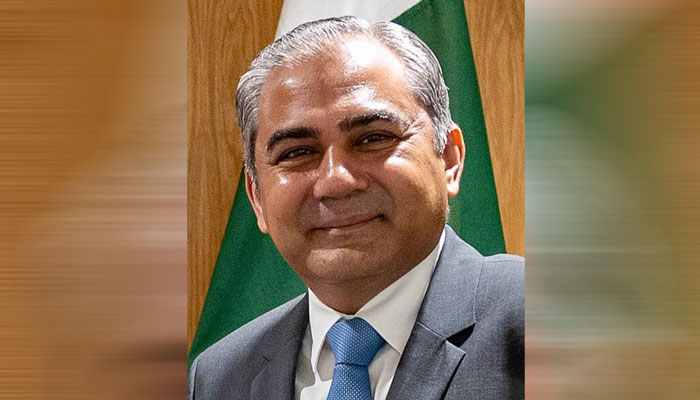Mohsin Naqvi’s Crackdown on Illegal Housing Yields Results
An eye on the efforts under the dynamic leadership to have a Clean, Green, and Developed Islamabad.
Mohsin Naqvi, Federal Minister for Interior and Narcotics who is known as “Mohsin Speed” with his unmatched ability and visionary leadership to execute and implement policies thus materialising dream into reality are very much in the realm to have a developed, beautiful, and a livable federal capital of the world set against the Margalla Hills, with generous green belts and civic order. However, due to mushroom growth of unapproved housing schemes, cooperative housing projects and creeping encroachments in the past across Islamabad were straining.
On the directions of Federal Interior Minister Mohsin Naqvi, officials have adopted zero tolerance policy coupled tough enforcement and encroachment actions with state of the art technology and city-building, aiming to make Islamabad not just encroachment free, but clean, green, beautiful and a model capital of the world.
A clear policy line: zero tolerance, backed by technology and institutions, Mohsin Naqvi set the tone by ordering an across the board crackdown on illegal constructions, unregistered housing societies and encroachments throughout Islamabad in urban and rural areas of Islamabad. Officials were directed to adopt to have a zero-tolerance policy, deploy satellite mapping technology and the Land Information & Management System to spot violations, and pursue action without fear or favor. The emphasis was not merely punitive but it was framed as necessary to restore the rule of law and deliver “world-class” urban services to residents of the federal capital, Islamabad which is considered one of the most beautiful capital of the world.   
Under the dynamic leadership of Mohsin Naqvi, Federal Minister for Interior, from policy to practice: visible, large scale enforcement and encroachment drive started.
The most vivid proof of intent came with the Saidpur Model Village operation in August 2025. Under Naqvi’s direction, authorities demolished more than 200 illegal structures and reclaimed more than 200 kanals of National Park land, an action explicitly presented as non discriminatory and data driven, targeting constructions raised after 2005. Besides recovery, the move aimed to reset land use around a heritage precinct so it can be re-developed transparently as a tourism and culture node. These steps embody the link Mohsin Naqvi’s repeatedly draws between enforcement and livability.
Beyond marquee, GT Road and Expressway operations, Naqvi convened high level reviews at the CDA Headquarters, instructing that all sectors affected by unauthorized structures be cleared on a fixed timeline, a rare, time-bound benchmark for a city-wide encroachment drive. The same meetings coupled clearance with service upgrades and security improvements, signaling that the campaign’s endpoint is a better-run city, not simply vacant plots.
Cleaning up the urban fabric while building for the future. For a capital to stay clean and green, enforcement must be paired with infrastructure that absorbs growth without chaos. In parallel with anti-encroachment actions, the government advanced mobility projects notably the T-Chowk Flyover and Shaheen Chowk Underpass to ease choke points and reclaim surface space for safer, greener streets. The same coordination forums also advanced upgrades to the Diplomatic Enclave and expansion of civic facilities (including new police stations), showing the anti-encroachment drive is nested in a broader modernization program rather than isolated demolition.  
How zero tolerance supports a clean and green Islamabad
1.Restoring planned land use: Removing unapproved societies and roadside occupations reduces illegal commercial spillover, protects right-of-way for footpaths, and safeguards designated green belts and national park land. The Saidpur clearances are a case in point, immediately reversing habitat pressure and visual blight on a high-value landscape edge. Making enforcement predictable: Satellite mapping and LIMS minimize discretion, improving fairness while speeding up action. Predictable enforcement deters fresh violations crucial to keep green areas from being nibbled away by incremental encroachments.
Linking clearance to access and amenity: Road and public-realm projects (flyovers, underpasses, upgraded precincts) channel growth into planned corridors, cutting ad-hoc spillover that often triggers informal occupations. This is the infrastructure backbone of a cleaner, greener city.
Moreover, Governance signals that matter.
The campaign’s credibility rests on three governance choices. First, time bound targets create public accountability and keep agencies aligned. Second, city level coordinationwith CDA, police, and Islamabad Administration in the loop reduces the enforcement eviction reoccupation cycle. The public communication via official briefings and press notes has documented the what, where, and why of operations, lowering rumor and resistance while raising deterrence.
Challenges and why staying the course is essential as any zero-tolerance program risks displacement concerns, legal pushback, and the temptation to pause once “headline” sites are cleared. Islamabad’s experience shows why persistence matters: violations proliferated over years; undoing them requires months of steady, even handed action plus rapid after care clear signage of land status, transparent auctions where appropriate, quick greening of reclaimed strips, and consistent monitoring through LIMS so that vacated space isn’t re-captured. The administration’s repeated stress on technology and deadlines suggests awareness of this “last mile” challenge.
Under the dynamic leadership of Mohsin Naqvi, from crackdown to city building actions in 2025 push beyond episodic “anti-encroachment drives.” They amount to a city building agenda where rule of law, digital governance, and targeted infrastructure move together. The actions against illegal possessions on state lands, enchantments and against illegal housing societies and cooperative societies reclaiming occupied public land while simultaneously investing in mobility, precinct upgrades, and stronger civic policing the campaign aligns enforcement with a positive urban vision. The reclaimed spaces will be formalized, landscaped, and integrated into the public realm, so that Islamabad will not only be encroachment free but it will be tangibly cleaner, greener, more beautiful and more liveable closer to the very well planned capital it was always meant to be in future.


Comments are closed, but trackbacks and pingbacks are open.